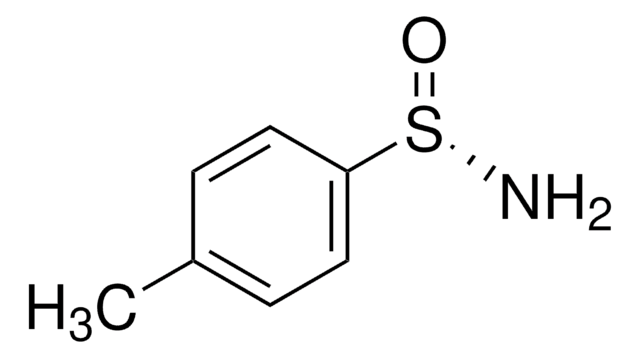236330
p-Toluenesulfonamide
ReagentPlus®, ≥99%
Synonym(s):
4-Methylbenzene-1-sulfonamide, p-Tosylamide
About This Item
Recommended Products
product line
ReagentPlus®
Assay
≥99%
form
solid
mp
134-137 °C (lit.)
SMILES string
Cc1ccc(cc1)S(N)(=O)=O
InChI
1S/C7H9NO2S/c1-6-2-4-7(5-3-6)11(8,9)10/h2-5H,1H3,(H2,8,9,10)
InChI key
LMYRWZFENFIFIT-UHFFFAOYSA-N
Gene Information
human ... CA1(759) , CA2(760) , CA5A(763) , CA5B(11238)
Looking for similar products? Visit Product Comparison Guide
Related Categories
General description
Application
- as nucleophile during tetrabutylammonium fluoride (TBAF) catalyzed vinyl aziridine opening reaction
- as reagent during selective aziridination of olefins catalyzed by dirhodium (II) caprolactamate
Legal Information
Storage Class Code
11 - Combustible Solids
WGK
WGK 1
Flash Point(F)
395.6 °F - closed cup
Flash Point(C)
202 °C - closed cup
Personal Protective Equipment
Certificates of Analysis (COA)
Search for Certificates of Analysis (COA) by entering the products Lot/Batch Number. Lot and Batch Numbers can be found on a product’s label following the words ‘Lot’ or ‘Batch’.
Already Own This Product?
Find documentation for the products that you have recently purchased in the Document Library.
Customers Also Viewed
Our team of scientists has experience in all areas of research including Life Science, Material Science, Chemical Synthesis, Chromatography, Analytical and many others.
Contact Technical Service












